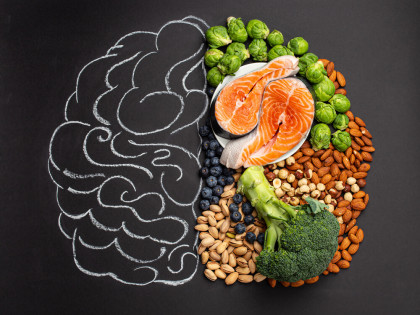Are you feeling hungry all the time? Have you noticed that you are preoccupied by the thought of food and your next meal? There are a few tweaks that you can make to the foods you eat, as well as how you eat, to help with keeping you feel fuller for longer.
Here are some healthy eating habits to help:
Choose foods with a low Glycaemic Index (GI)
The GI of a food is a measure of a food on a scale of 1 to 100 based on how quickly and how much carbohydrate foods raise blood sugar levels after being eaten. Foods that are low GI (<35) are those that are more slowly digested and influence a lower and slower rise in blood sugar levels. Including low GI foods for your meals and snacks may help in keeping you feeling fuller for longer. Read more about the GI of foods here.
Eat enough fibre
Particularly soluble fibre. Soluble fibre is found in foods such as beans, peas and lentils, oats and barley. Soluble fibre creates a thick, gel like substance that is known to slow digestion, and can support you in feeling fuller for longer. A food is considered a ‘good source’ of fibre if it contains more than 4g of fibre per serve. One cup of broccoli contains about 3.5g of fibre, and one cup of chickpeas contains about 8g of fibre. Read more about how to increase your fibre intake here.
Check the balance of your meals
Eating a meal that includes a source of lean protein, carbohydrates, colour from fruits and vegetables and healthy fats will provide you with a variety of vitamins and minerals, as well as nutrients that will contribute to your feeling of satiety (fullness). A balanced meal will moderate the rise and fall of blood sugar, and will provide you with fibre, protein and fats to slow digestion and support you in feeling fuller for longer.
Eat at regular intervals
Allow enough time between your meals that you recognise yourself starting to feel a little hungry, though avoid becoming ravenous by leaving it too long between the next time you eat or skipping meals. This window will vary for each person, though a good window is between 2 and 4 hours. Research has found that people who skipped meals were more likely to eat more kilojoules at the following meal.
Remove the distractions
Research has found that eating whilst distracted such as watching TV, eating at your desk whilst working, and playing video games can be distracting enough that people are less likely to acknowledge and remember the food that they’ve eaten, leading them to eat more at the following meal.
Plan smart snacks
Apply the concepts of building a balanced plate to your snacks too, rather than reaching for chocolate, chips or adding a muffin to your coffee order. Read more about smart snacking here.
Include these foods to help you feeling fuller for longer:
- Popcorn
- Potatoes
- Rolled oats
- Brown rice
- Cauliflower
- Eggs
- Nuts













